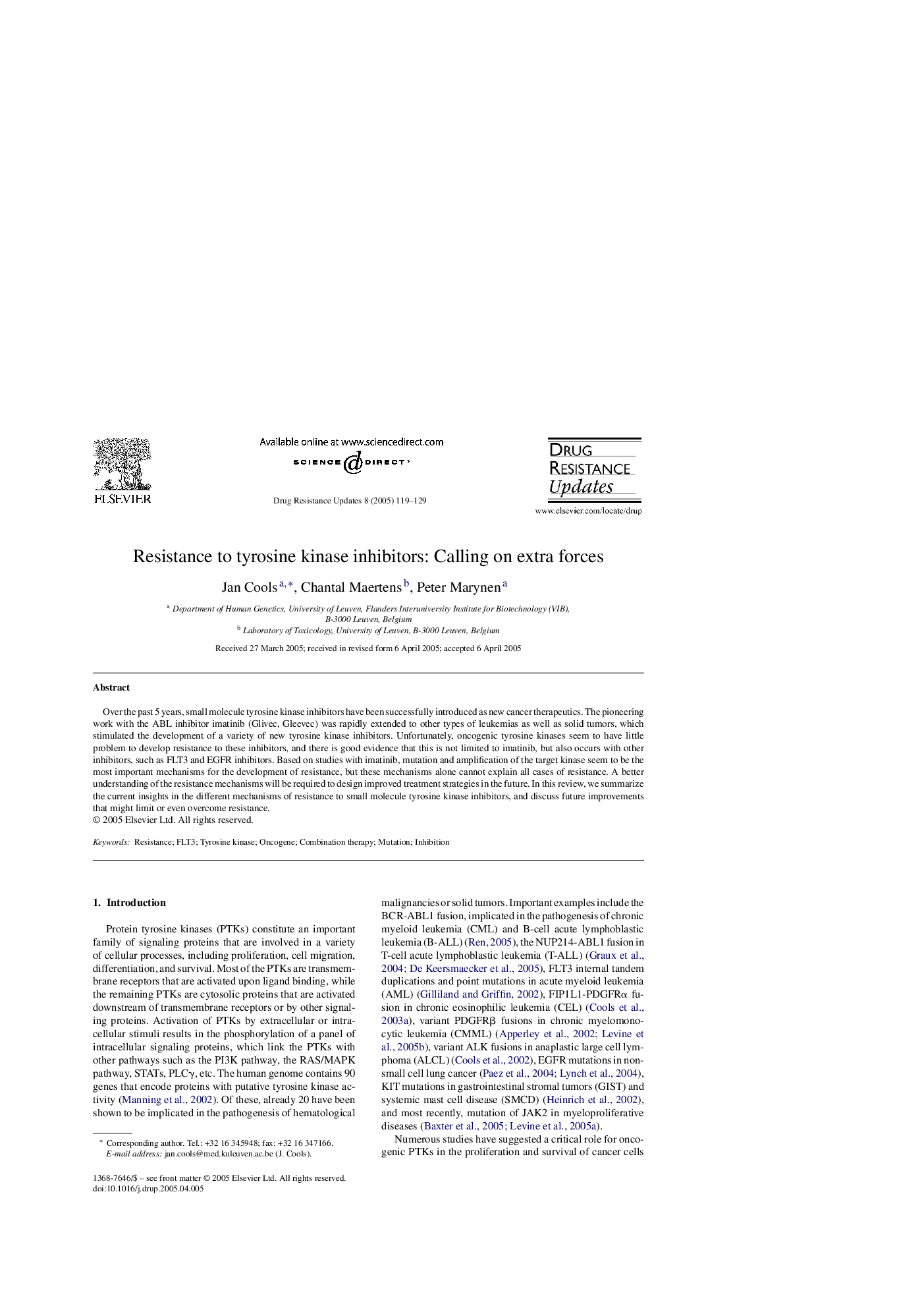| Article ID | Journal | Published Year | Pages | File Type |
|---|---|---|---|---|
| 10903540 | Drug Resistance Updates | 2005 | 11 Pages |
Abstract
Over the past 5 years, small molecule tyrosine kinase inhibitors have been successfully introduced as new cancer therapeutics. The pioneering work with the ABL inhibitor imatinib (Glivec, Gleevec) was rapidly extended to other types of leukemias as well as solid tumors, which stimulated the development of a variety of new tyrosine kinase inhibitors. Unfortunately, oncogenic tyrosine kinases seem to have little problem to develop resistance to these inhibitors, and there is good evidence that this is not limited to imatinib, but also occurs with other inhibitors, such as FLT3 and EGFR inhibitors. Based on studies with imatinib, mutation and amplification of the target kinase seem to be the most important mechanisms for the development of resistance, but these mechanisms alone cannot explain all cases of resistance. A better understanding of the resistance mechanisms will be required to design improved treatment strategies in the future. In this review, we summarize the current insights in the different mechanisms of resistance to small molecule tyrosine kinase inhibitors, and discuss future improvements that might limit or even overcome resistance.
Related Topics
Life Sciences
Biochemistry, Genetics and Molecular Biology
Cancer Research
Authors
Jan Cools, Chantal Maertens, Peter Marynen,
